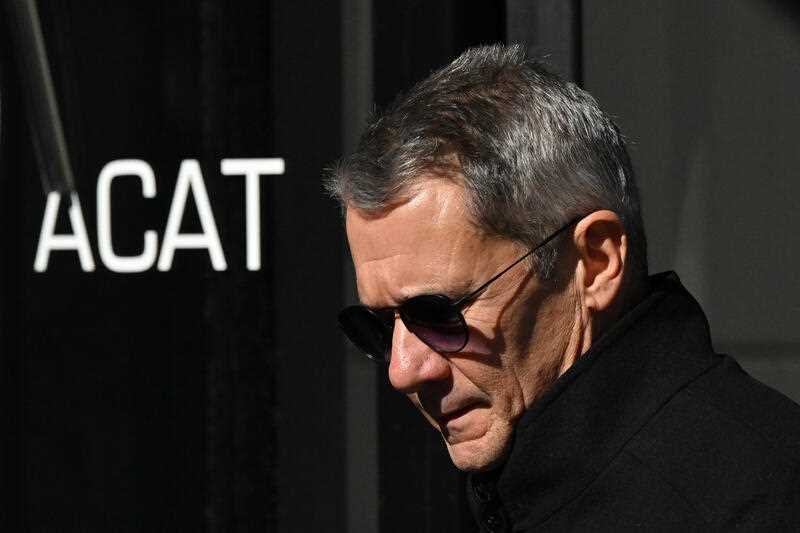For a week, the ACT’s chief prosecutor has faced the uncustomary position of a grilling in the witness box as his actions during the rape trial of ex-Liberal staffer Bruce Lehrmann are put under the microscope.
An independent inquiry, led by former Queensland solicitor-general Walter Sofronoff, has been probing how the territory’s justice system handled Brittany Higgins’ rape allegations against her former colleague, which led to an ultimately aborted trial.
Director of Public Prosecutions Shane Drumgold was subjected to five days of questioning this week as the first witness, revealing a breakdown in the relationship between his office and police during the course of the high-profile case.
Mr Lehrmann faced an ACT Supreme Court trial in October 2022 but juror misconduct led to a mistrial before prosecutors dropped the charge against him.
He denies raping Ms Higgins in Parliament House in 2019.
Mr Drumgold told the inquiry police had a “passion” for the prosecution against Mr Lehrmann to fail and there was unprecedented pressure on his office not to go ahead with a second trial.
“Strange events” over the course of the investigation and trial led Mr Drumgold to consider the possibility of a political conspiracy contributing to a wider interest in the prosecution’s failure.
One such event occurred when a brief of evidence containing Ms Higgins’ counselling notes was mistakenly provided by police to the defence team, an act Mr Drumgold thought had been deliberate.
But he said having read police statements to the inquiry, the concept of a conspiracy was incorrect and he rather believed the officers who investigated the matter had a “skills deficit”.
The inquiry heard the prosecutor’s office “closed ranks” against police during the trial because of the belief officers had lost objectivity in the matter.
Tensions between Mr Drumgold’s office and investigators arose about Ms Higgins’ credibility, but the prosecutors said many of the arguments made by police were not admissible in court.
He believed officers engaged in “stereotype analysis” about how rape complainants behaved, influencing their investigation.
“There was an individual who was fairly central to the investigation … who said he was physically ill when charges were laid,” Mr Drumgold said.
“If you’re central to an investigation and your mindset is such that you’re going to be physically ill if (it) results in charges, it can’t do anything but interfere with your objectivity.”
Mr Drumgold insisted he maintained objectivity throughout the trial, but he admitted to several errors in judgement with the benefit of hindsight.
He regretted his decision to make a public statement about the personal attacks against Ms Higgins at the same time he announced the charges against Mr Lehrmann would be dropped.
Mr Drumgold told the inquiry his intention was to lighten the load on Ms Higgins, but he conceded the statement only “fed the pack”.
The prosecutor also faced intense cross-examination by top barrister Sue Chrysanthou, representing journalist Lisa Wilkinson – who won a Logies award for her 2021 interview about Ms Higgins’ allegations.
Ms Chrysanthou grilled Mr Drumgold about his meeting with Wilkinson ahead of the 2022 awards ceremony when the prosecutor said he told the journalist that any publicity about the case could impact the trial.
Wilkinson denies Mr Drumgold warned her against giving her award speech or that publicity would pose a risk to the trial.
The speech generated intense media scrutiny, which delayed the trial and led to significant criticism of Wilkinson.
The prosecutor admitted he could have been clearer but he believed Wilkinson and Channel 10 lawyer Tanya Smithies, who also attended the meeting, understood his advice as a warning.
The inquiry is also due to hear evidence from Mr Lehrmann’s defence lawyer, Steven Whybrow, officers from the Australian Federal Police and ACT Police, and the territory victims of crime commissioner.
Mr Sofronoff will provide a report to the ACT government at the end of July.
This week, Mr Drumgold expressed sympathy for all involved in the case.
“Cases like this have no winners and no losers. They only have losers and losers,” he said.
By Maeve Bannister in Canberra



